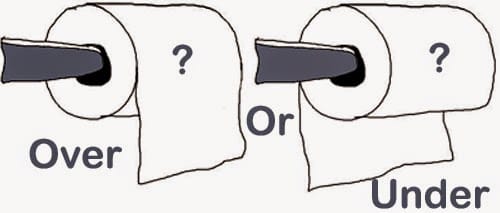Episodes: 1,200 words

One of the most fateful things to happen to me in my career happened because I misheard someone.
When The A.V. Club extended the offer to me to join their freelance TV critic crew (which at that point was pretty small), I hopped on the phone with then-editor Keith Phipps to talk over how things would work. After discussing how to use the company's publishing program (a system I no longer remember at all, because time is ephemeral, and we are bound to its whims), he mentioned a few ground rules for discussion: It could utilize first person here and there; it should be a review of the episode, not a recap; it shouldn't try to rewrite what the writers were doing; I should try to engage in comments if I had the time; etc.
And then he said, "Oh, and we try to keep them under 1,200 words."
Now, if you read literally anything I wrote at The AVC, you will know that I misheard him and thought he said "over 1,200 words." This made sense to me as a young writer -- you wanna make sure people are getting their money's worth! But if you read any of my TV criticism before that point (mostly at the House Next Door), you'd know that it was pretty rare for me to get in the 1,200 neighborhood. I crested 1,000 words a couple of times, and for the Battlestar Galactica finale, I broke 2,000. But as a rule, I wrote in the 750-1,000 range, which isn't a bad place to be for a recap of most shows. Like 750 words on The Big Bang Theory? That's just about right. 1,200? That's pushing it.
But I misheard, and I started extending my thoughts. On the one hand, I think it made me a better writer in some ways. I couldn't just coast on really general observations of what was good and what was bad. I had to drill down into those observations and find out why I felt the way I did. But it also made me kinda terrible in other ways. I still write stuff that's wordier than it needs to be, and I often feel like essentially everything I write could be halved and be just as good. And this is with a really good editing team that isn't afraid to cut down my bullshit when it gets too repetitive.
I'm writing about this because one of my big goals of late has been to write shorter pieces. I'm not great at this (y wife snidely pointed out that I sent her two articles to read today which were both over 1,500 words, and I really haven't kept to my goal of trying to keep all of these newsletters under 1,000 words), and the process I developed to allow myself to write a bunch of TV recaps very quickly is one that essentially guarantees some degree of bloat. But I do feel like I'm turning the ship, very slowly, in the right direction.
But I'm also writing about it because in literally any job, it's far too easy to misunderstand someone who tells you what you're supposed to do. The further I get into my career, the more I try to restate what I think I've been told back to my boss, just to be sure we're on the same page. Sometimes, they've genuinely misspoken. Sometimes, I've misheard. And sometimes, they think they were clear, but I thought they meant something else entirely.
Words are such funny things because they're often our best method for communication, but everything I say gets filtered through your brain and your perception of what those words mean. And even as I write this, I know you know it -- but you also don't know it. In which case, repetition can save your life.
Or, y'know, just knowing that "under" and "over" mean completely different things. That's helpful too.
---
New feature! Our Friday mailbag feature is a lot of fun! Why not get involved? Please email me your questions over the course of the week, and I'll pick a few I find interesting and go from there. I'll always answer at least three per week, unless I just don't have the material. AND THAT'S ON YOU.
--
Episodes is published three-ish times per week, and more if I feel like it. It is mostly about television, except when it's not. Suggest topics for future installments via email or on Twitter. Read more of my work at Vox.




